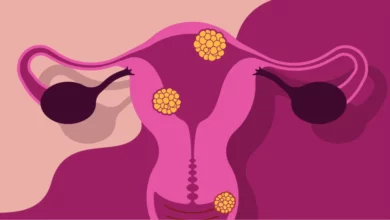Health & Fitness
Top signes that you have magnésium deficiency what to do about it
November 30, 2021
2,026 5 minutes read
Some experts claim that magnesium deficiency is the single largest health problem in our world today. Following are symptoms that you may be experiencing a deficiency of the vital mineral.
- Calcification of the arteries
Unfortunately, this is one of the first symptoms to appear, as well as one of the most serious. Calcification of the arteries can occur from low magnesium levels. As a result, one’s preposition to develop coronary problems, like heart attacks, heart failure, and heart disease, is increased.
Magnesium’s ability to prevent over-calcification is one reason why the Framingham Helath Study found that consuming enough magnesium lowers the risk of coronary heart disease. Believe it or not, half of all heart attack patients received injections of magnesium chloride to help stop the blood clotting and calcification. - Muscle Spasming & Cramping
This is one of the most notable symptoms of being deficient in magnesium. Just as calcification can cause stiffening of the arteries, it can cause stiffening of muscle tissue, as well. This can result in awful cramps and spasms. Fortunately, consuming enough magnesium (or supplementing the nutrient) can reduce the incidence of this symptom. - Anxiety & Depression
Anxiety and depression affect millions of people. Could something as simple as magnesium help to reduce the blues? Research suggests “yes.”Psychology Today explains one possible reason:
“Magnesium hangs out in the synapse between two neurons along with calcium and glutamate. If you recall, calcium and glutamate are excitatory, and in excess, toxic (link is external). They activate the NMDA receptor. Magnesium can sit on the NMDA receptor without activating it, like a guard at the gate. Therefore, if we are deficient in magnesium, there’s no guard. Calcium and glutamate can activate the receptor like there is no tomorrow. In the long term, this damages the neurons, eventually leading to cell death. In the brain, that is not an easy situation to reverse or remedy.” - Hormone Imbalances
If you experience crazy “ups” and “downs” before or after your period, it’s likely your body is deficient in magnesium. The higher the estrogen or progesterone levels in a woman’s body, the lower the magnesium. This is also why why pregnant women experience more leg cramps.
According to Dr. Carolyn Dean, author of the book The Magnesium Miracle, muscle cramps related to the menstrual cycle can also be related to magnesium levels. She recommends women with bad PMS and cramps take magnesium early in their cycles before the symptoms begin. - High Blood Pressure / Hypertension
A Harvard study with over 70,000 people found that those with the highest magnesium intake had the healthiest blood pressure numbers. A follow-up meta-analysis of available studies showed a dose-dependent reduction of blood pressure with magnesium supplementation.
That’s not all — a University of Minnesota study found that the risk for hypertension was 70 percent lower in women with adequate/high magnesium levels. - Pregnancy Discomfort
Similar to hormone problems, low magnesium levels can adversely affect pregnancy health and mood. Some women report less morning sickness during pregnancy when supplementing with transdermal magnesium.
Magnesium can also reduce hypertension and muscle cramps during pregnancy. Supplementation can also help to ward off preterm labor and alleviate headaches. - Low Energy
You may remember from biology class that magnesium is required in the reactions that create ATP energy in cells. As Wellness Mama summarizes, ATP or adenosine triphosphate is the main source of energy in the cells. To be active, it must bind to a magnesium ion.
In other words, without magnesium, you literally won’t have energy on a cellular level. This can show up as fatigue, low energy, lack of drive, and other problems. - Bone Health
Most people regard calcium as the most important mineral for healthy bones. While it is important, magnesium may even be more so! In cases of magnesium deficiency, the bone suffer in the following ways:- Vitamin D Absorption
Magnesium is essential for vitamin D to turn on calcium absorption. That’s why magnesium supplementation may be necessary when taking vitamin D (or else levels may become even more depleted). - Proper Calcium Use
Magnesium is required to stimulate the hormone calcitonin which draws calcium out of the muscles and tissues and into the bones. This helps explain why magnesium helps lower the risk of osteoporosis, arthritis, kidney stones, and heart attack.
- Vitamin D Absorption
- Sleep Problems
Melatonin, chamomile, and lavender are all helpful aids to snooze peacefully. However, magnesium is the ultimate relaxation mineral, as Dr. Mark Hyman says. Magnesium helps to relax the body and the mind, which both contribute to restful sleep. Furthermore, magnesium is required for proper function of the GABA receptors in the brain. GABA is the neurotransmitter that allows the brain to transition to a restful state. - Other Symptoms
A number of vitamins and minerals work synergistically and magnesium tops the list. It is needed for the proper utilization of calcium, potassium, vitamin K, vitamin D, and other nutrients. By using magnesium externally or transdermally (“across the skin”), the body can absorb what it needs without absorbing too much.
November 30, 2021
2,026 5 minutes read




